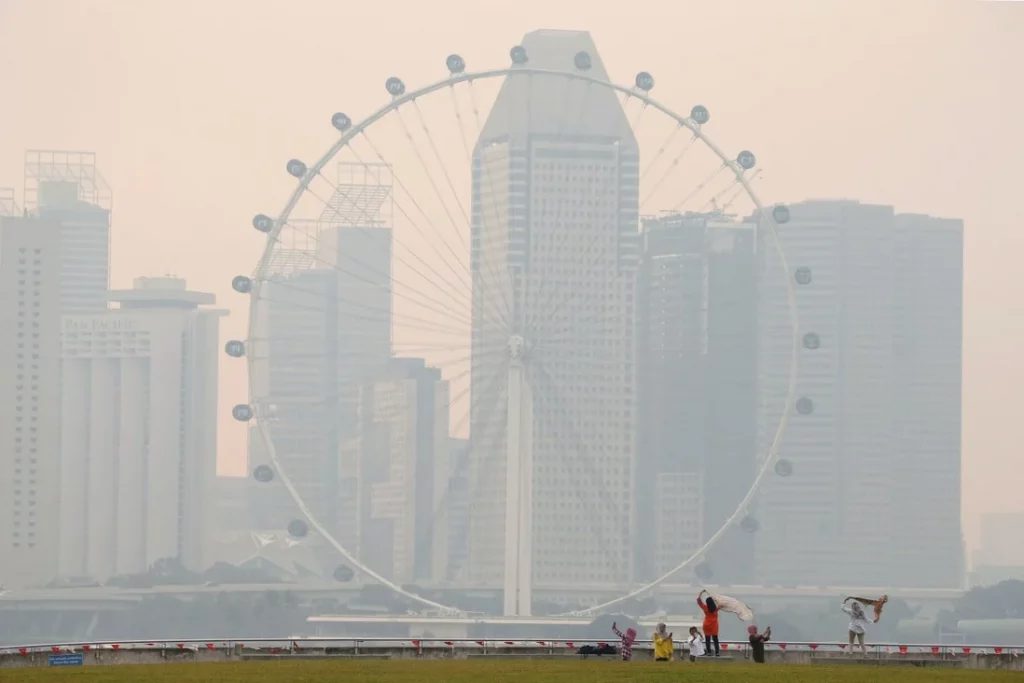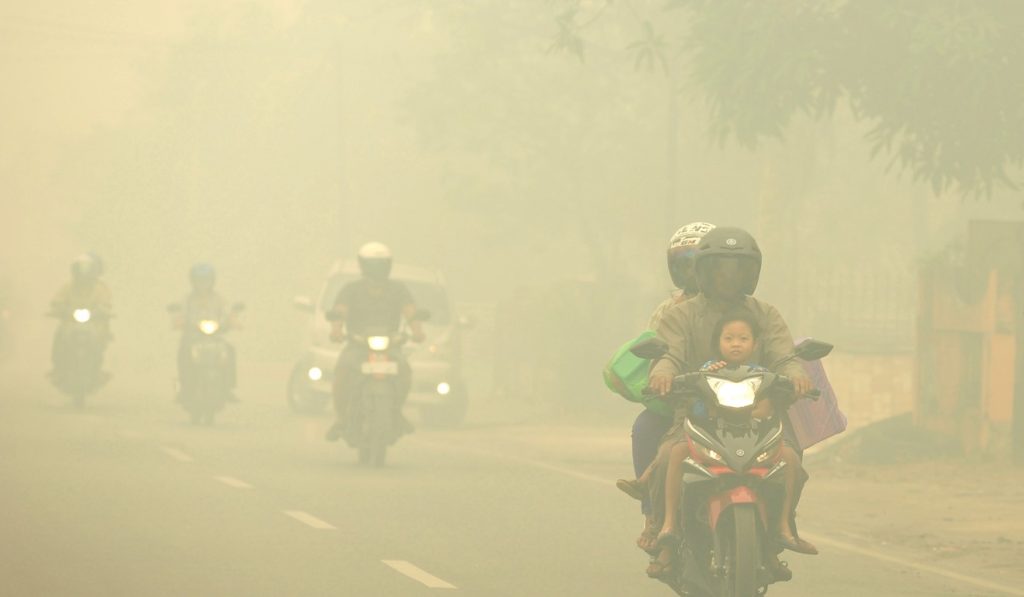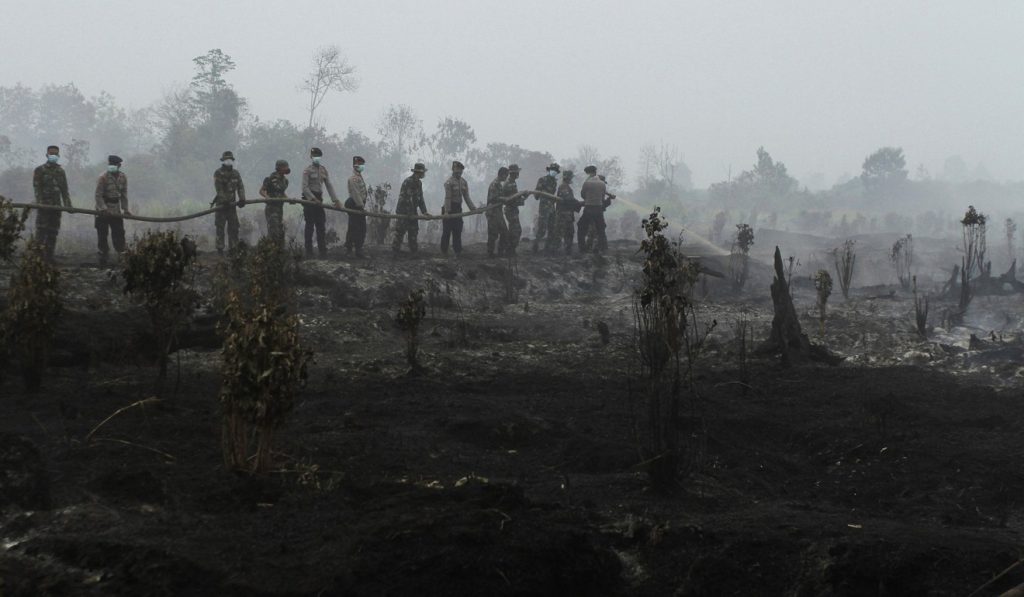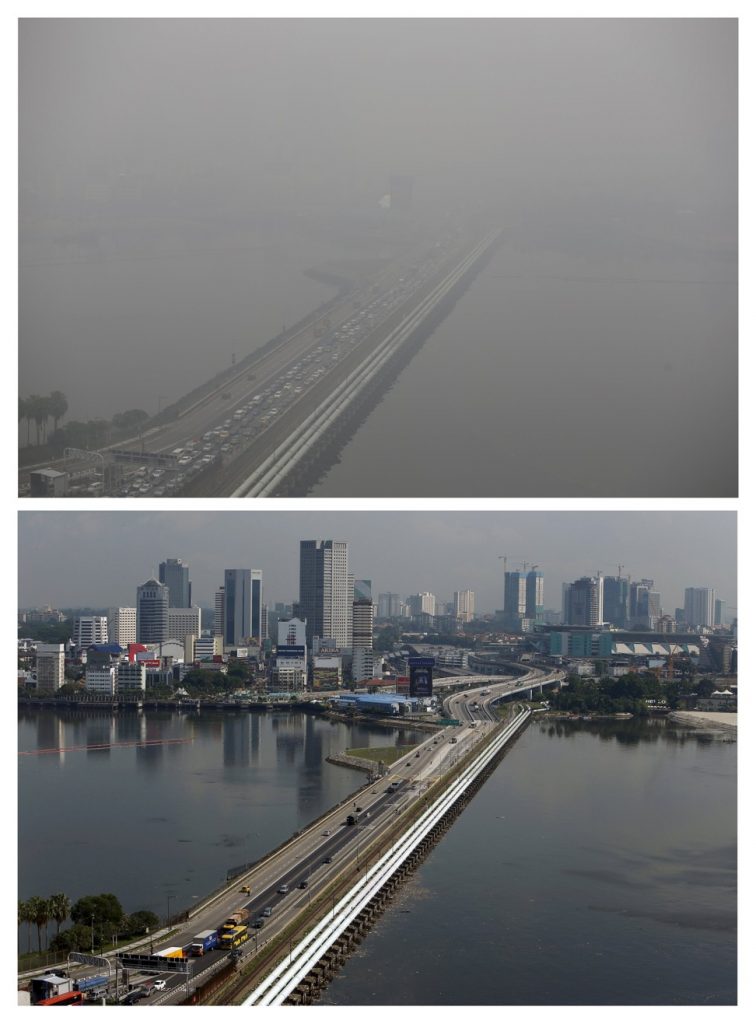Major food companies, such as Nestlé, Hershey’s, Mars, and Kraft Heinz, use palm oil in their products as a “healthier” food oil. Neither Europe nor the United States has taken action against these companies despite the clear externalisation of cost. Almost everyone has turned a blind eye.
If the haze crisis is going be solved, then Indonesia is going to have to take the lead. A strong Indonesia should first take a tough stand on all matters with regard to illegal encroachment of the forest, enforce the no-burning regulations that are in place, and start to internalise the external costs of plantation farming.
Jakarta can tax the products of plantations before they leave the country. This would ensure that palm oil, wood pulp, and other environmentally damaging products are priced accurately before they are sold to suppliers. Indonesia can also implement regulations that snap into place when Jakarta declares a national haze crisis. When a crisis is declared, there could be greater enforcement of forest conservation measures, funded by levies that go into immediate effect on farms and plantations to help counteract the crisis.
Finally, Indonesia can mandate that commodity traders disclose the details of their businesses and transactions, as well as detail where goods were procured. This can help determine the “inverse” of value creation along the supply chain: at what points are costs externalised to a third party? The Indonesian government can then stage economic interventions at these points to reconcile the difference between private and external cost.
But merely punishing plantation owners without ensuring that alternatives are available will guarantee that much of the punishment will fall onto poor farmers in Borneo, worsening the rural underdevelopment on the island. The government needs to invest heavily in a more sustainable agricultural sector that can provide farmers with livelihoods and a steady income to sustain themselves.
Perhaps it is best to start with what we would like the island of Borneo to look like, and work backward from there. In this vision for Borneo, the country has an economy based not on industrial agriculture but on smallholder farmers growing high-value food crops (to attain a decent livelihood and to be self-sufficient in the staples), which does not widen the threat to the remaining forest and even aids in the regeneration of degraded land.





























